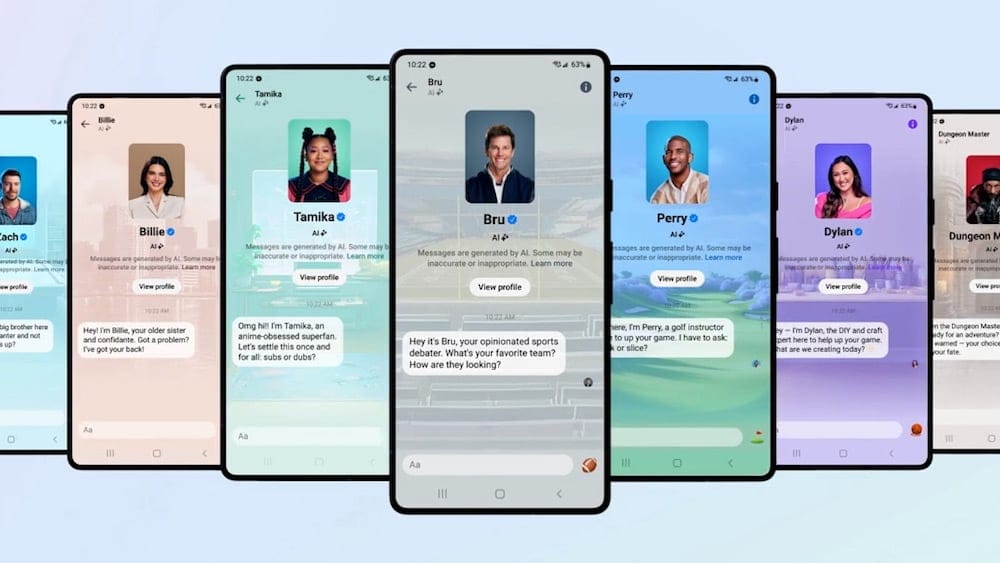Are Meta’s Celebrity Bots Taking AI Too Far?
The introduction of Meta’s AI chatbot resembling Kendall Jenner, known as Billie, is part of a broader initiative by the company. Billie, portrayed as an “older sister” character, is one of several AI personas developed by Meta, each with unique interests and personalities, drawing from the likenesses of celebrities and influencers. This program includes figures like Paris Hilton, Tom Brady, Snoop Dogg, and Naomi Osaka, among others, each inhabiting a specific niche for user interaction on platforms like WhatsApp, Messenger, and Instagram
 image Source
image Source
Billie’s design mirrors Jenner’s appearance and voice, creating a high-fidelity digital representation that aims to engage users in conversation, offering advice much like a real-life older sister. Notably, the celebrities involved, including Jenner, have given Meta permission to use their likenesses for these AI assistants, and Meta has reportedly paid substantial sums for these rights—up to $5 million to certain creators for their participation.
The rollout of these AI chatbots has been met with mixed reactions. While some may find the technology impressive, others have expressed discomfort, describing the bots as “creepy” and expressing concern over the potential implications of such lifelike digital personas. The confusion was particularly pronounced when fans initially mistook Billie’s videos for Jenner herself before realizing they were interacting with an AI version, which led to a shift from confusion to a sense of unease.
These AI chatbots serve Meta’s strategic goal of engaging younger demographics on social media platforms like Facebook and Instagram, which have been seeing a shift toward older user bases. However, this move also raises questions regarding user privacy, data protection, and the broader implications of using celebrity likenesses in the realm of AI, especially at a time when the entertainment industry is grappling with the integration of AI technology and its impact on creative professions.
10+ Reasons Why Overworking is Bad for Your Health
19 Creative Pop-Up Shop Examples
The Ultimate Guide to Pinterest Analytics
How to Make Perfect Content Calendars in Google Sheets


